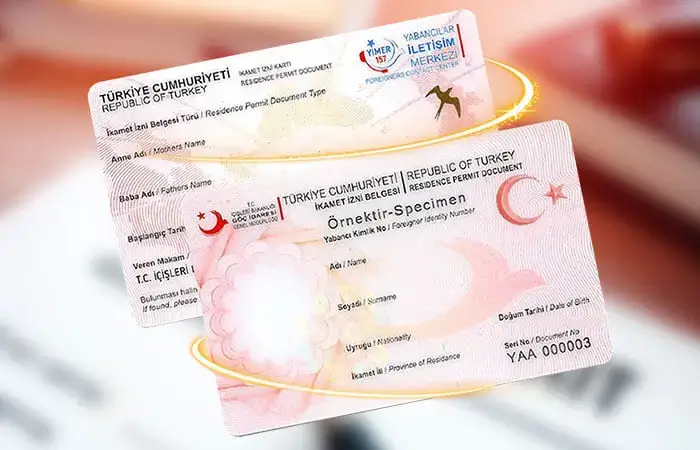
Securing Your Future in Turkey: A Guide to the Long-Term Residence Permit
What is a Long-Term Residence Permit?
Who is Eligible? The Mandatory Conditions ????
-
What counts as "uninterrupted"? Stays outside of Turkey for more than 6 months in one year or for a total of more than 1 year within the last 5 years are considered an interruption and will reset the 8-year clock. -
Which permits count? Time spent on a student residence permit is only half-counted. Time spent under refugee, conditional refugee, secondary protection status, or humanitarian residence permit does not count towards the 8-year calculation at all.
The Application Process: A Step-by-Step Guide
-
Residence Permit Application Form -
Passport or travel document (original and copy) -
Four biometric photographs -
Copies of previous residence permit cards -
An official document from the Provincial Directorate of Migration Management showing you have completed 8 years of uninterrupted residence. -
A document from the Social Assistance and Solidarity Foundation showing you have not received social aid. -
Proof of sufficient and regular income for the duration of your stay. -
A valid health insurance policy. -
A police clearance certificate (Adli Sicil Kaydı) from Turkish authorities. -
An address registration document (Yerleşim Yeri Belgesi).
Why is the Role of a Lawyer Crucial?
-
Accurately assess your eligibility and calculate the 8-year period correctly. -
Ensure your document file is complete and error-free, preventing delays or rejections. -
Provide legal counsel throughout the process, from the online application to the final decision. -
Represent you in communications with the migration authorities. -
In case of a rejection, a lawyer can file a legal appeal in the Administrative Court.
Conclusion
More content:
- A Comprehensive Guide to Acquiring Turkish Citizenship by Real Estate Investment in 2024
- A Foreigner's Guide to Buying Property in Turkey: A Step-by-Step Legal Process
- How to Obtain a Residence Permit in Turkey? A Comprehensive Guide for Foreigners 2024
- A Comprehensive Guide to Acquiring Turkish Citizenship by Real Estate Investment
- A Foreigner's Comprehensive Guide to Buying Property in Turkey
- Property Acquisition in Turkey for Foreigners: A Comprehensive Step-by-Step Guide
- Turkish Citizenship by Investment: Your Comprehensive Guide
- Consumer Rights in Turkey: A Guide for Foreigners with Defective Goods
- Debt Collection in Turkey for Foreigners: The Legal Enforcement (İcra) Process
- Tax Law in Turkey: A Guide to Tax Liabilities for Foreigners
- Medical Malpractice in Turkey: Legal Rights for Foreign Patients
- Making a Will in Turkey as a Foreigner: Understanding the 'Reserved Portion' Rule
- The Name Equivalence Certificate in Turkey: A Guide for Foreigners and Dual Citizens
- Debt Collection in Turkey for Foreigners: The Legal Enforcement (İcra) Process
- Eviction Lawsuits Against Foreigners in Turkey: Tenant Rights and Legal Procedures
- Making Foreign Judgments Valid in Turkey: The Recognition and Enforcement Process
- Traffic Accidents Involving Foreigners in Turkey: The Legal Process
- Losing Turkish Citizenship: The Legal Grounds for Denaturalization
- Compensation Rights for Employees Dismissed from a Job in Turkey
- Arbitration in Turkey for Foreigners: An Alternative Dispute Resolution
- Commercial and Company Law in Turkey for Foreigners
- Work Permit Refused? A Legal Guide to the Appeal Process for Foreigners in Turkey
- Appealing Administrative Fines in Turkey: A Guide for Foreigners
- Issuing a Power of Attorney in Turkey for Foreigners: Legal Requirements
- Divorce and Alimony Cases for Foreigners in Turkey
- Rights and Responsibilities of Foreigners under Turkish Criminal Law
- The Right to a Fair Trial for Foreigners in Turkey
- Condominium Law in Turkey and Its Importance for Foreigners
- Legal Restrictions for Foreigners Buying Land and Fields in Turkey
- Inheritance Law: Succession and Transfer Procedures for Foreigners in Turkey

 Turkish
Turkish English
English German
German Russian
Russian
